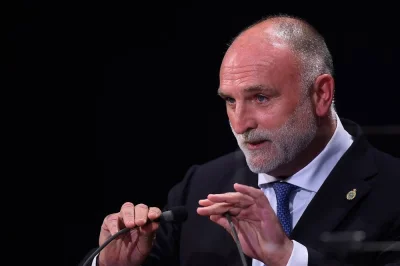An initiative launched in Britain with the ultimate objective of banning the sale of energy drinks to young people, as it grapples with some of Western Europe’s worst child obesity rates, should ideally be emulated across the world.
According to a public consultation initiated on August 30, Prime Minister Theresa May wants to prevent retailers from selling popular energy drinks to children because of their high levels of sugar and caffeine.
The government estimates more than two-thirds of 10 to 17-year-olds and a quarter of six to 9-year-olds consume the drinks, which are linked to a host of health and behaviour problems, from headaches to hyperactivity.
If May described childhood obesity as one of the greatest health challenges her country faces, the scenario is applicable to many nations across the world.
The plans were first announced in June, alongside a commitment to halve childhood obesity rates by 2030.
The 12-week consultation will ask whether the restrictions should apply to children under 16 or under 18 and if the law should be changed to prevent children from buying them in any situation.
The proposed legislation will prevent the sale of energy drinks that contain more than 150mg of caffeine per litre to children.
A 250ml can may contain double that amount - the equivalent of nearly three cans of cola, according to the department of health.
On average, non-diet energy drinks also contain 60% more calories and 65% more sugar than regular soft drinks.
It is estimated that nearly a quarter of children in England are obese or overweight by the age of five, rising to one-third by the time they leave primary school aged 11.
Professor Russell Viner, president of the Royal College of Paediatrics and Child Health, said that children and young people in high income countries consume more sugar and calories than required and are therefore unlikely to need additional energy.
This combined with regular caffeine consumption is concerning, says Viner, as there is little evidence of the effect caffeine could potentially have on the developing body.
In a 2014 survey of over 5,000 children in England 14% of 11-15 year olds reported consuming energy drinks at least two to four times a week, and 5% of all young people reported drinking energy drinks daily.
The sugar content in many of these drinks is as much as 27g per 250ml serving.
Caffeine is probably the most commonly used psychoactive drug across the world as it increases activity and heightens attention and awareness.
But caffeine also increases anxiety, reduces sleep and is linked with behavioural problems in children, according to Viner.
Recent studies also show that it may have concerning effects on the developing brain.
Yet surprisingly little is known about the safety profile of caffeine.
Energy drinks can contain at least 320mg/L of caffeine and evidence is emerging that consumption of energy drinks among children and young people is associated with anxiety, depression, sensation seeking, and increased hyperactivity and inattention.
This is alarming, says Viner, because psychological distress can lead to risky behaviours like drug use, and poorer academic attainment.
But perhaps most concerning are the effects on sleep, he says - a clear inverse association has been established between the consumption of caffeinated energy drinks and sleep duration.



